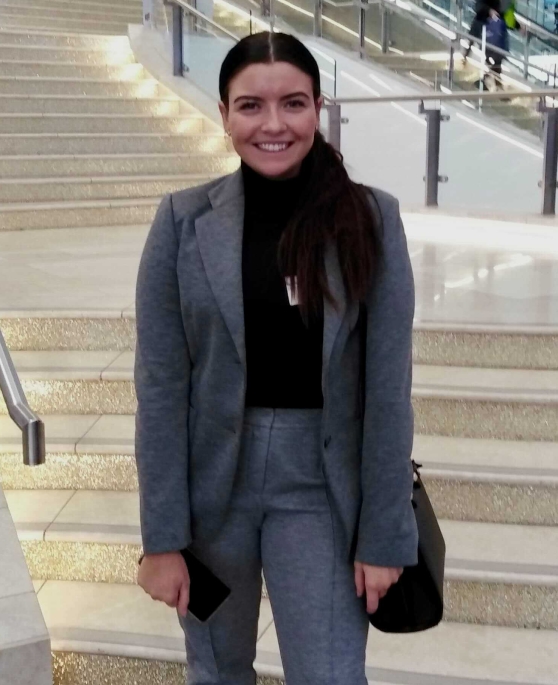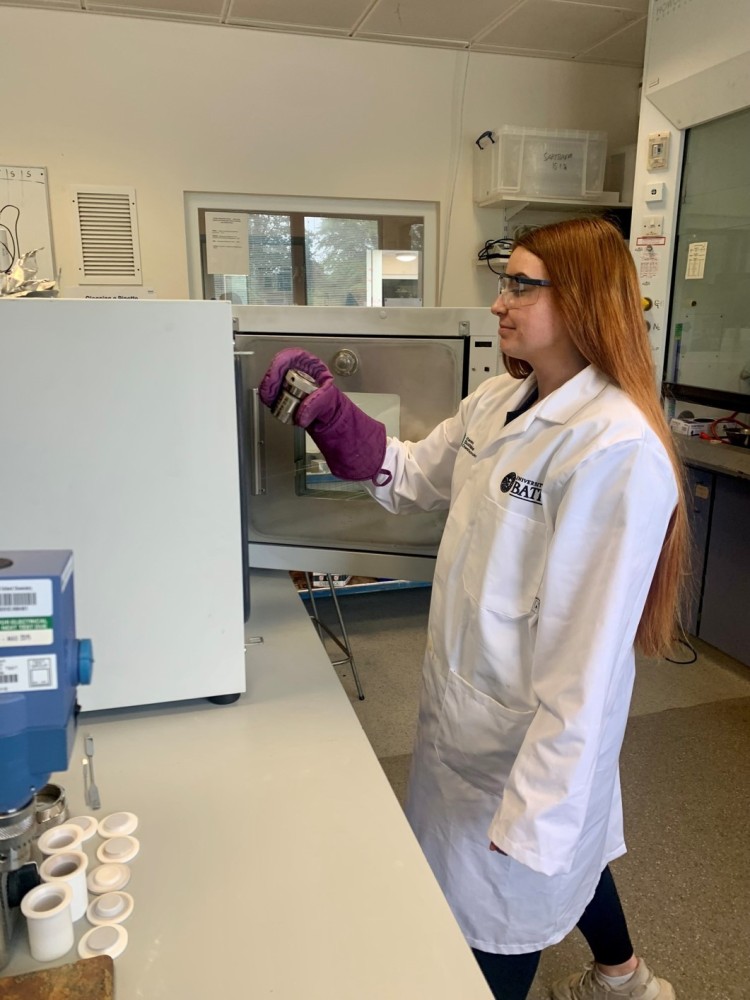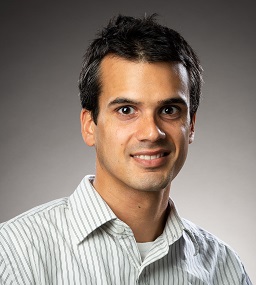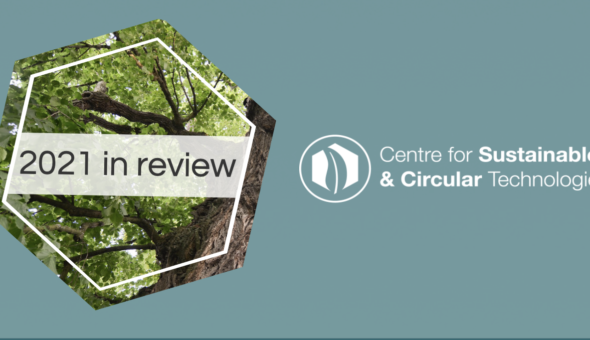This post was originally published in the IChemE blog.
Advancing heterogeneous catalysis and boosting collaboration between academics and industry to create solutions that benefit society was something the late Professor Syd Andrew was enthusiastic about.
In his passing, the IChemE Fellow and distinguished expert in the field of catalysis left a fund to support future generations of chemical engineers in the field. In commemoration, IChemE set up the Andrew Legacy, which comprises the Andrew Medal to recognise major contributions in the field, and the Andrew Fellowship to support researchers in heterogeneous catalysis. Additionally, in 2019, IChemE’s Board of Trustees agreed to a proposal to fund a promising PhD student at the University of Bath through an Andrew Student Fellowship.

Claire-Louise Woodward, CSCT student, was the winner of the Andrew Student Fellowship and will receive IChemE funding throughout her four-year research project. After almost one year into her fellowship, IChemE decided to catch up with her.
Developing sustainable fuel solutions
Claire is researching how small molecules such as methanol and dimethyl ether (DME) can be turned into hydrocarbons through a reaction known as the methanol-to-hydrocarbons (MTH) process, which involves passing these small molecules through different zeolite catalysts (natural minerals, composed of aluminium, silicon, and oxygen, with molecular-sized pores and channels). These hydrocarbons are then used to create various everyday products, such as fuels for transport and bulk chemicals for the production of plastics, resins and solvents.
Traditionally, PhDs in catalysis would consist of synthesising, characterising and testing catalysts. Nowadays, in-depth studies of how the relevant molecules behave when interacting with catalysts are more commonplace. A PhD looking at this behaviour will typically focus on one length scale – e.g. molecular level studies – with collaboration among multiple research groups necessary to cover all the length scales associated with catalyst design. Uniquely, Claire’s study will cover a range of scales from the molecular scale to the microscale in one project, both theoretically and experimentally.
She is studying some of the behaviours that take place during the MTH reaction. These behaviours include each molecules’ reaction at the active site inside the catalyst, and the molecules’ diffusion through the zeolite’s porous network. How these behaviours interplay is crucially important for optimising the catalyst reaction rates (activity) and the amount of the desired product produced (selectivity) in this important process.
Claire said: “Heterogeneous catalysis has numerous benefits, namely that the catalyst can be separated from a reaction mixture in a straightforward manner and often recycled, which is an important consideration for industrial processes.
“The development and optimisation of heterogeneous catalysis is crucial for overcoming some of the huge challenges that our society faces, from energy production and environmental protection to developing fine chemicals and medicines.”
She added: “The MTH process is a very desirable reaction for the ‘fossil free’ production of fuels and chemicals, which involves the building up of hydrocarbons using methanol as the building blocks, rather than breaking down (or ‘cracking’) the very large species found in crude oil fractions.”
Recently, there have been significant advancements in the MTH process on a commercial scale, showcasing its importance. This includes the first phase of the Connell Chemical Industry’s 600 Kilotons per Annum (KTA) methanol-to-olefin plant successfully starting up in April 2020. It was the first large-size chemical project started during the COVID-19 pandemic enabling Shanghai to help restart its economy.
Developing a deeper understanding of the MTH process will allow current catalysts to be optimised and more efficient ones to be developed.
“Ultimately, the aim is to aid our transition away from fossil fuels to more sustainable feedstocks to meet the needs of the many industries related to fuel, along with the bulk and fine chemicals that society relies upon,” said Claire.
“Methanol has lower production costs compared to alternative fuels and can be manufactured from a variety of carbon-based feedstocks, including synthesis from syngas, plastic waste sources, or CO2 conversion. Sustainably sourced methanol is also a very important factor.”
“Other promising routes involve biomass or even reducing CO2 after its direct capture from air, allowing the MTH process to play a crucial role in the circular economy – of which catalysis research is at the heart.”

Probing the scales
In her research, Claire hopes to probe different factors that can affect the behaviour of methanol in these catalysts. These include different zeolite structures and compositions as mentioned earlier, the effect of the build-up of other active species inside the catalyst pores, and the effect of catalyst damage during the process. She aims to understand the influence of these factors on how these species act on the molecular scale (how and where an active species is observed interacting with the active site), the nanoscale (studying how molecules diffuse through the zeolite framework) and microscale (probing vapour uptake by the catalyst particles). An in-depth understanding of these factors will enable the full potential of these catalysts to be unlocked.
She said: “The real upside to this project is that I have three supervisors, each an expert upon a different scale. I can draw from a huge amount of expertise; from the molecular level studying the active site, through to the levels of mass transport across particles and really build a full picture of the catalytic system, pooling it all together to probe a specific system, across multiple scales, in a complementary way.”
Simulations and skill development
Coming to the end of Claire’s first year, and despite limited access to lab and central facilities due to the pandemic, she has already gained various new skills. This includes building and running complex molecular dynamics simulations of methanol molecules in acidic zeolite catalysts, synthesising and characterising different zeolites using techniques such as x-ray diffraction and Fourier transformed infra-red spectroscopy and learning a computer programming language, Python, to develop ways to analyse the data from experiments and simulations more efficiently.

She looks forward to developing these techniques and learning others. This includes learning how to perform and analyse neutron scattering experiments (a powerful set of techniques to probe how molecules move through the framework of zeolite catalysts), carrying out some more traditional catalytic testing studies, and becoming advanced in Python. Through this fellowship she has also become more confident in presenting her research to different audiences.
“This fellowship allows me to develop a unique combination of skills in the study of catalysis and materials chemistry,” she said.
“It is very rare that a PhD project is designed to provide a student with the range of capabilities essential to probe a catalytic system from the active site all the way through to the particle scale.
“The theoretical and experimental techniques involved for all of these scales can be hugely insightful; but to create real change, one has to employ them in complementary studies on the scale above or below, to build a complete picture of these systems that can allow us to move towards a more sustainable future.”
Claire feels this fellowship will also support her for a career in industry.
“This fellowship should set me up to play a role in many sectors due to the broad skillset I hope to possess by the end,” she said.
“I also plan to undertake a placement with a leading company in the field of heterogeneous catalysis when the pandemic allows it. This will be hugely influential for me and my research, so I look forward to that greatly.”
Bridging the gap

Alexander O’Malley, Whorrod Research Fellow at University of Bath, is the lead supervisor on the project, and specifically responsible for studies on the nanoscale – employing a range of simulation techniques and neutron scattering experiments. His job is to enable Claire to make key decisions about systems and appropriate techniques in this multiscale approach.
“None of this would be possible without the generous funding of this studentship from the Syd Andrew Legacy,” he said.
“One of Syd Andrew’s most significant priorities was bridging the gap between scientific research and applied/industrial engineering. We’re aiming to stay true to this by incorporating a placement with our industrial partners both in their research labs and their industrial process design teams.
“We expect this to greatly influence Claire’s project and the systems we study, informed by both the engineering and economic factors that go into the design of a catalytic process.”
Respond



